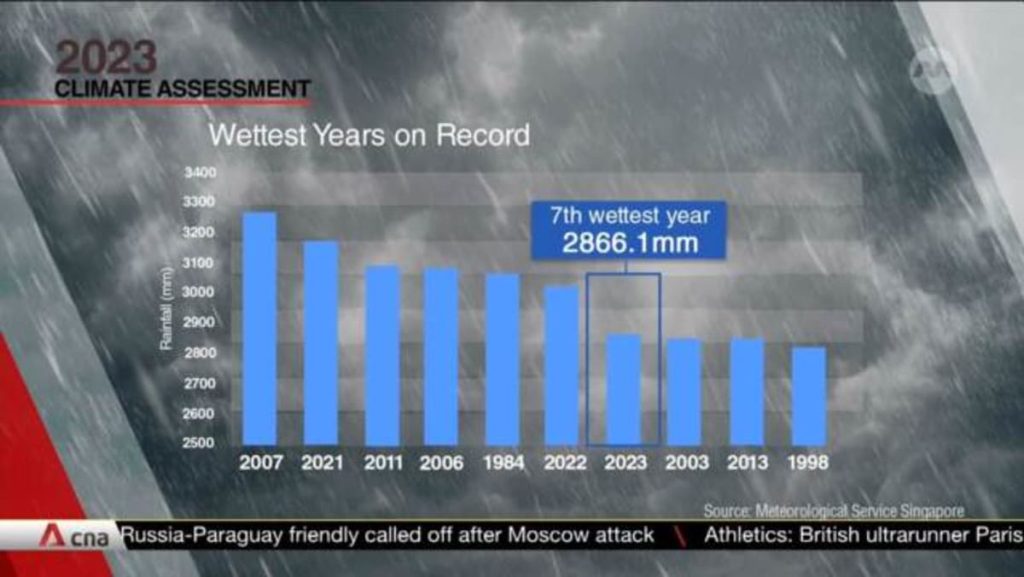The Singapore climate report projects that 2024 may be even warmer than 2023 due to the lingering effects of El Nino conditions. 2023 was noted as the warmest year globally since 1850, making it Singapore’s fourth warmest year on record. This information highlights the ongoing issue of long-term global warming, which remains a cause for concern for the city-state. The report suggests that the impacts of climate change are becoming more pronounced and are likely to continue affecting Singapore in the coming years.
The effects of El Nino conditions are expected to contribute to the increased temperatures in 2024, with Singapore experiencing higher temperatures as a result. This pattern of warming is in line with global trends that indicate a steady increase in temperatures over time. The data from 2023 and the projections for 2024 are indicative of the challenges posed by climate change and the urgency of addressing this issue at both the local and global levels. The report serves as a warning of the potential consequences of inaction and underlines the need for sustained efforts to mitigate the impacts of climate change.
Singapore’s meteorological service has emphasized the need to address long-term global warming as a key priority. The report underscores the importance of developing strategies to adapt to the changing climate and reduce greenhouse gas emissions to limit the extent of warming in the future. The city-state is already taking steps to combat climate change, such as implementing energy efficiency measures and promoting the use of renewable energy sources. However, more concerted action is needed to address the underlying causes of global warming and its impact on Singapore’s climate.
The findings of the climate report highlight the interconnected nature of climate change and its impact on Singapore’s environment, economy, and society. Rising temperatures can lead to more frequent heatwaves, water shortages, and other climate-related challenges that can affect public health, agriculture, and infrastructure. It is crucial for Singapore to build resilience to these impacts and ensure that its policies and practices are designed to withstand the changing climate conditions. Supporting research and innovation in climate science and promoting sustainable development are essential aspects of addressing the challenges posed by global warming.
As a small island nation, Singapore is particularly vulnerable to the impacts of climate change, including rising sea levels and extreme weather events. The projections for 2024 suggest that the city-state will continue to face challenges related to climate change and will need to take proactive measures to mitigate its effects. By investing in climate-resilient infrastructure, promoting sustainable practices, and raising awareness about the importance of addressing climate change, Singapore can build a more sustainable future for its residents and contribute to global efforts to combat the climate crisis.
In conclusion, the Singapore climate report for 2024 underscores the urgency of addressing global warming and its impact on the city-state. As temperatures continue to rise and the effects of climate change become more pronounced, Singapore must work to develop effective strategies to adapt to these changes and reduce its carbon footprint. By taking proactive measures to combat climate change, Singapore can build a more sustainable and resilient future for its citizens and contribute to global efforts to address the climate crisis.


